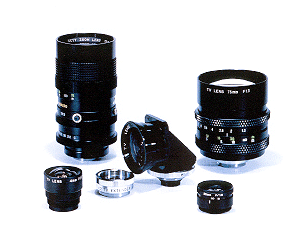High resolution lenses for machine vision — standard and custom lens design
Understanding CCTV Audio Surveillance Laws
High Resolution Lenses for machine vision, instrumentation, inspection and vibration-sensitive applications. Standard and custom hi-res lens assemblies.

CCTV
Closed circuit television (CCTV) cameras are so prevalent that we almost take them for granted and for many of us, they are such a fact of daily life that we don’t pay much attention to them. While some people feel that CCTV cameras, like those used at red lights, are an invasion of privacy, for many knowing that the cameras are there offer a measure of comfort.
Business owners and home owners make use of CCTV technology as a way to monitor and provide surveillance when they aren’t at home, in darkened areas of a business or warehouse and to monitor parking lots and garages. The next time you’re in a shopping mall, look up and you’re bound to see cameras on the light poles providing surveillance.
Most CCTV surveillance equipment is image-only capture, however there are some instances in which a business owner or home owner may want to capture audio as part of the surveillance. If you’re considering this as a way to amp up your security, you need to be aware that while audio surveillance can be a useful tool to be used in addition to a CCTV camera, there are local, state and federal laws that prohibit the installation of audio surveillance. With audio surveillance, the operator is able to not only see what is going on, but to hear conversations as well. Audio surveillance may enhance the security of your business but you need to place microphones carefully and have a clear understanding of the laws of the local municipality, your state and the overarching federal regulations.
Why are there different laws that govern audio versus CCTV camera surveillance? Here are a few reasons:
- Recording private conversations that are not necessarily related to any wrong doing that may be captured on a CCTV camera could lead to law suits.
- Some states consider audio surveillance a form of wire tapping and this is illegal in many states.
- Placing audio surveillance in “private” areas such as bedrooms, bathrooms or dressing rooms in department stores are typically off limits in all states and regulated by federal law. Just as you wouldn’t place a CCTV camera in a bathroom, neither should you have microphones in there.
- Covert video surveillance may be allowed in some states but this does not mean that audio surveillance falls under the same regulations. Having a camera for surveillance that also has a microphone could lead to legal issues you may not have planned for. If you’re unaware of the audio surveillance laws in your area of the country, you will want to opt for a CCTV camera that has no microphone.
If you feel your home or business has a need for audio surveillance, it’s best to check with a security professional so that you understand the legal ramifications prior to purchasing or installing this type of equipment.
For many business and home owners, having CCTV surveillance equipment serves the purpose of adding to the safety and security of both employees and family members as well as helping be a deterrent to theft in business settings.
Universe Optics is a manufacturer of standard and custom CCTV lens assemblies for image capture, barcode scanning, night vision systems, medical systems, hi-speed imaging, machine vision and robotics vision.